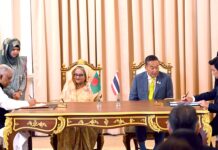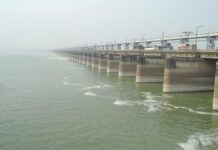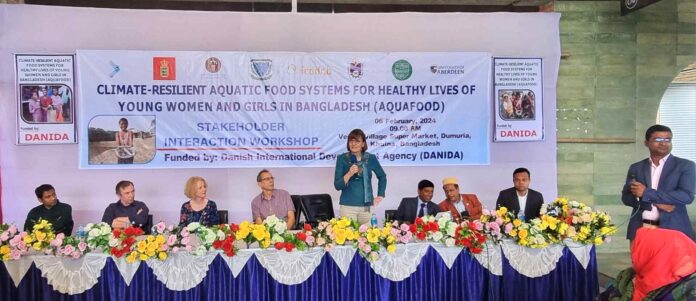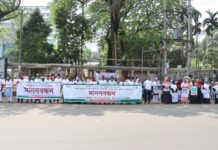Sheikh Mahtab Hossain from Dumuria Upazila, Khulna:
Exchange of ideas and workshops with grassroots stakeholders, especially mothers, adolescents and public and private field workers serving under the project titled ‘Aquafood with high nutritional value and climate-resilient aquatic food system for healthy life of young women and girls’ in Bangladesh Tuesday 06 February 2024 Press of Dumuria Held at Village Super Market premises.
Among the foreign researchers in the workshop. Nanna Rooz, Team leader of the research group and coordinator of the Aquafood project, Prof. Dr. Dave Little, University of Stirling, United Kingdom, Professor Dr. Baukje de Rouge, University of Aberdeen, UK; Professors of various universities, researchers of various research institutes, development experts of various government and private organizations, entrepreneurs, other relevant stakeholders were present.
The PI and Co PI from Aquaculture Department of Bangladesh Agricultural University of Aquafood Project presented their speech on the occasion.
Professor Dr. Muhammad Mahfuzul Haque, PI, Aquafood Project’s, Aquaculture Department. Bangladesh Agricultural University, M. A. Salam, PI, Aquafood Project’s, Aquaculture Department. Bangladesh Agricultural University. PI Professor Dr. Abdullah-Al Mamun, Noakhali Science and Technology University Part , PI Gulshan Ara, ICDDRB Part.
District Civil Surgeon Sabizur Rahman, District Fisheries Officer Jaydev Pal, and Senior Upazila Fisheries Officer Md Abu Bakar Siddique spoke on the occasion, Dumuria Upazila Parishad Female Vice Chairman Sharmina Parveen Ruma, Programme officer of the Solidaridad Network Asia Md Taibur Rahman, Project Officer of The Hunger Project Md Mehedi Hasan and others were present.
The speakers said that it has been playing an important role in both the food habits and economy of the people of Bangladesh. Bangladesh ranked 3rd in inland fisheries production, 5th in aquaculture and 11th in marine fisheries production in 2018. For this reason, we have been giving importance to the fisheries sector as a very important sector.
Aquafood project highlights the important role that aquatic food plays in both the diet and economy of the people of Bangladesh. The country’s rich coastal and riverine ecosystems have traditionally supported large-scale fisheries, and aquaculture is serving as the basis for rapid expansion. Adolescents and young women are particularly at risk due to poverty, social discrimination, child marriage and early pregnancy, speakers added. Climate change risk management in Bangladesh is hampered by the absence of effective local action and policy implementation. Sectoral disparities between aquaculture production, nutrition and public health further hinder the implementation of inclusive policies, limiting the holistic management of climate change.
The workshop was jointly organized by Bangladesh Agricultural University, Noakhali Science and Technology University and ICDDRB and funded by the international organization DANIDA.
Home National Agriculture Workshop held on Nutritional Fish Farming and Women’s Health Management to Combat...
































